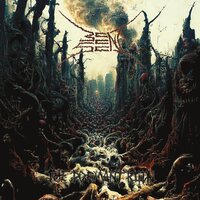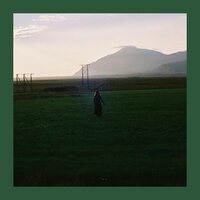In August 1969, visionary Japanese guitarist Masayuki Takayanagi formed his first New Direction group and embarked on an unparalleled musical journey that would forge a radical new musical language. Comprised of himself on acoustic and electric guitar and joined by Motoharu Yoshizawa on bass and Yoshisaburo 'Sabuoz' umi on drum s, Takayanagi's group created a new unconstrained form of music; It expanded on the most radical, fiery elements of American and European Free Jazz, while refracting them through an avant-garde prism. Harmonic and melodic development were rejected in fof feedback and complete spontaneity. With New Direction, Takayanagi had achieved a "decisive break" the past, creating a ferocious, often violent sound that paradoxically took both musical movement and stillness to their extremes. In the process, he helped set off a musical revolution that has resonated in the decades since, both in the Japanese underground and the wide world of adventurous music. As influencial as he was, it was not until 25 years later that a wide audience would finally hear ayanagi's vision With the group in it's most explosive and unmitigated realization; Japan's P.S.F. records released two CD's which featured unearthed, previously unheard 1970 recordings made at the legendary Shibuya Tokyo venue, Station '70. The recordings were revelatory; They presented nascent, jarring versions of the "Gradually Protion" and Mass Mass Projection" mod. alities in uncut, unvarnished long form. Joined on some tracks by saxophonist Mototeru Takagi, the performances are intensely physical and visceral creating something entirely new and beautiful. Black Editions is proud to present the entirety of the recordings presented on both P.S.F. albums as well as a previously unreleased side-long Mass Prodelin a jection e, remastered 3 LP box set. The set features the stark photography of the late Yuji Itsumi and presents the original liner notes by key Japanese music critics and historians Yoshiyuki Kitazato and Toshihiko Shimizu newly translated into English as well as in the original Japanese.
Release date:
June 24, 2022
Label:
Install our app to receive notifications when new upcoming releases are added.

Recommended equipment and accessories
-

Nobsound Little Bear T7 Tube Preamp
Delivers rich, warm audio through its high-quality vacuum tubes, featuring multiple inputs and adjustable gain
-

Pro-Ject Phono Box DC Pre-Amp
Compact, high-performance phono preamplifier for both MM and MC cartridges, delivering a clean, detailed signal with minimal noise.
-

Nagaoka MP-110H Cartridge
Features a high-quality elliptical stylus that provides excellent tracking and minimizes distortion, delivering a detailed sound reproduction with an output voltage of 5.0 mV
-

Cartridges - Top Picks
A selection of turnatble cartridges that provide great performance and sound quality
-

Pro-Ject Debut Carbon EVO
Featuring a one-piece carbon fiber tonearm, precision-tuned motor, and a heavy steel platter with TPE damping, it ensures superior stability and sound quality.
Featured Upcoming Vinyl
-

Lamb of God Into Oblivion
Epic Records
March 13, 2026 -

Abrams Loon
Blues Funeral Recordings
April 17, 2026 -

Phoebe Rings Aseurai ("Blue Butterfly" Blue And Clear Splatter)
Carpark Records
March 27, 2026 -

New Found Glory Listen Up!
Pure Noise Records
February 20, 2026 -

Nightmare of You Nightmare Of You
Equal Vision Records
March 27, 2026 -

Melanie C Sweat
Red Girl Media Ltd.
May 1, 2026 -

Bent Sea The Dormant Ruin
Give Praise Records
February 27, 2026 -

As Everything Unfolds DID YOU ASK TO BE SET FREE?
Inside Out Music
April 10, 2026 -

Larry Fleet Another Year Older (Green)
Stellar Way Records
February 13, 2026 -

Talking Heads Tentative Decisions: Demos & Live [2xLP]
Rhino/Warner Records
March 6, 2026 -

Bruno Mars The Romantic (Amazon Exclusive)
Atlantic
February 27, 2026 -

Ásgeir Julia
One Little Independent Records
February 13, 2026 -

Monstrosity Screams from Beneath the Surface
Metal Blade
March 13, 2026 -

Waterbaby Memory Be a Blade
Sub Pop
March 6, 2026


















